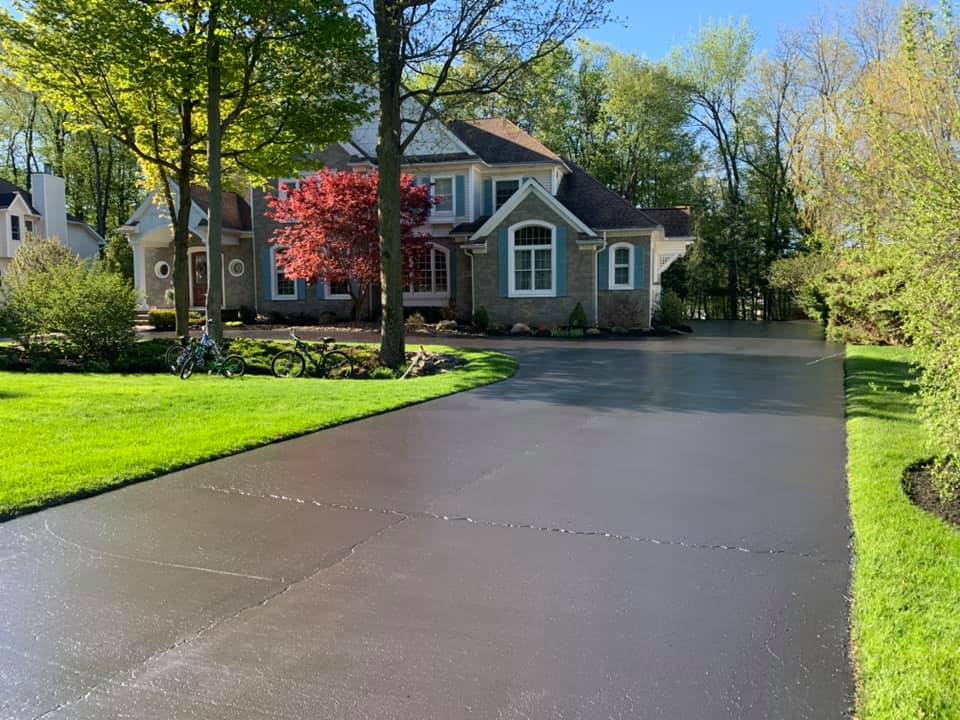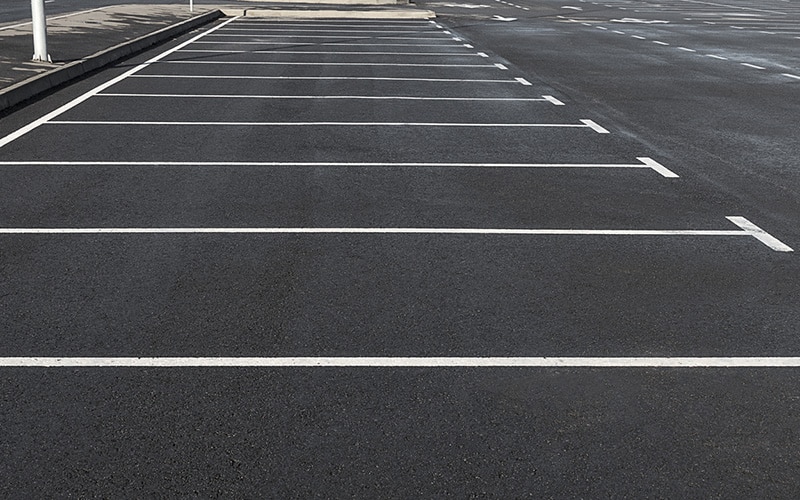Secure Surfaces with Professional Asphalt Sealing: Cold Mix Basics
Secure Surfaces with Professional Asphalt Sealing: Cold Mix Basics
Blog Article
Cold Mix Asphalt Vs. Hot Mix Asphalt: Which Is Right for You?

Structure Differences
Cold mix asphalt is produced by emulsifying the asphalt binder with water and an emulsifying agent before blending it with accumulation. The warm mix asphalt manufacturing process involves warming the accumulation and asphalt binder individually prior to integrating them at the asphalt plant.
Moreover, cold mix asphalt tends to be much less thick and a lot more flexible than warm mix asphalt. This adaptability makes it far better suited for locations with greater degrees of activity, such as driveways or roadways with hefty website traffic. On the other hand, hot mix asphalt is recognized for its high durability and resistance to rutting and breaking, making it a recommended choice for freeways and high-traffic roads where long life is important.
Installment Refine Differences
The process of mounting chilly mix and warm mix asphalt exhibits noteworthy variations in their procedures and demands. Cold mix asphalt, being a more flexible material, can be used straight from the bag or container onto the pocket or harmed location. It requires very little preparation work, such as cleaning up the location and condensing the cool combine with hand tools. This makes it a convenient alternative for fast and short-lived solutions. In comparison, warm mix asphalt requires a much more intricate installment process. It includes heating up the blend to high temperatures prior to laying it down on a properly ready base. The preparation consists of condensing the base, applying a tack layer, and utilizing hefty machinery like pavers and compactors for a smooth and resilient coating. Due to the home heating requirements, hot mix asphalt installments are commonly performed by experts with customized tools, guaranteeing a more structurally audio and irreversible result.
Longevity and Durability Aspects
When thinking about asphalt choices, durability and durability are vital factors to review for enduring pavement performance. Hot mix asphalt (HMA) is recognized for its exceptional resilience and long life. The heats during the laying and blending process enable better compaction, causing a denser and more powerful pavement structure. This leads to HMA being much more immune to hefty web traffic lots, rough weather, and the effects old compared to chilly mix asphalt (CMA)
In regards to durability, HMA normally outperforms CMA as a result of its exceptional stamina and resistance homes. HMA pavements have a longer service life, requiring less constant fixings and upkeep, which can translate to cost financial savings over time. Additionally, HMA sidewalks are a lot more quickly personalized to satisfy details task needs, further enhancing their resilience.
Expense Factors To Consider
Taking into consideration the financial effects is a crucial element when evaluating the selection between warm mix asphalt (HMA) and cool mix asphalt (CMA) for sidewalk jobs. While the preliminary cost of hot mix asphalt is normally higher than that of cool mix asphalt, HMA often gives a much more affordable solution in the long run due to its superior longevity and longevity.
Along with material expenses, it's necessary to think about the expenses related to setup and maintenance when comparing HMA and CMA. HMA typically calls for specific equipment and knowledgeable labor for correct setup, which can affect overall project expenses. Alternatively, CMA is much easier to collaborate with and can commonly be applied making use of less complex methods, possibly decreasing installment expenses. Ultimately, the decision between HMA and CMA should consider not simply the preliminary expense yet additionally the long-term financial effects to figure out one of the most cost-effective option for the particular pavement project.
Environmental Influence Comparison
Comparison of the ecological influences in between hot mix asphalt (HMA) and chilly mix asphalt (CMA) reveals distinct distinctions in sustainability methods. HMA manufacturing requires high temperatures, causing enhanced power consumption and greenhouse gas exhausts. The procedure additionally launches unpredictable organic substances (VOCs) and unsafe air toxins (HAPs) right into the environment. In comparison, CMA is generated and applied at lower temperature levels, minimizing energy use and discharges substantially. The reduced manufacturing temperatures of CMA cause decreased fuel usage and lower levels of carbon dioxide emissions, making it an extra ecologically pleasant choice.
Moreover, using CMA often includes recycling existing asphalt pavement, advertising resource conservation and minimizing the amount of waste sent to landfills. This reusing facet additionally enhances the sustainability of CMA compared to HMA. In general, when considering the environmental impact, CMA arises as an extra environmentally lasting choice due to its lower power needs, decreased exhausts, and the capacity for reusing existing materials. By choosing CMA over HMA, roadway building and construction tasks can contribute favorably to ecological preservation efforts.
Final Thought
In verdict, the selection between cold mix asphalt (CMA) and warm mix asphalt (HMA) relies on different variables such as structure, installment process, durability, long life, price, and environmental effect. asphalt repair. While CMA provides a quick and economical remedy for minor repairs, HMA guarantees remarkable longevity and longevity for hefty website traffic locations. Consider these aspects thoroughly to identify which kind of asphalt is the appropriate option for your paving requires

Considering the monetary implications is a crucial facet when examining the option in between warm mix asphalt (HMA) and chilly mix asphalt (CMA) for pavement projects. While the initial price of warm mix asphalt is generally higher than that of cool mix asphalt, HMA typically provides a more economical service in the lengthy run due to its premium resilience and longevity. asphalt repair.Comparison of the ecological impacts between hot mix asphalt (HMA) and cold mix asphalt (CMA) discloses distinctive differences in sustainability methods.In final thought, the choice between cold mix asphalt (CMA) and warm mix asphalt (HMA) depends on different elements such as composition, installation process, durability, durability, expense, and environmental influence
Report this page